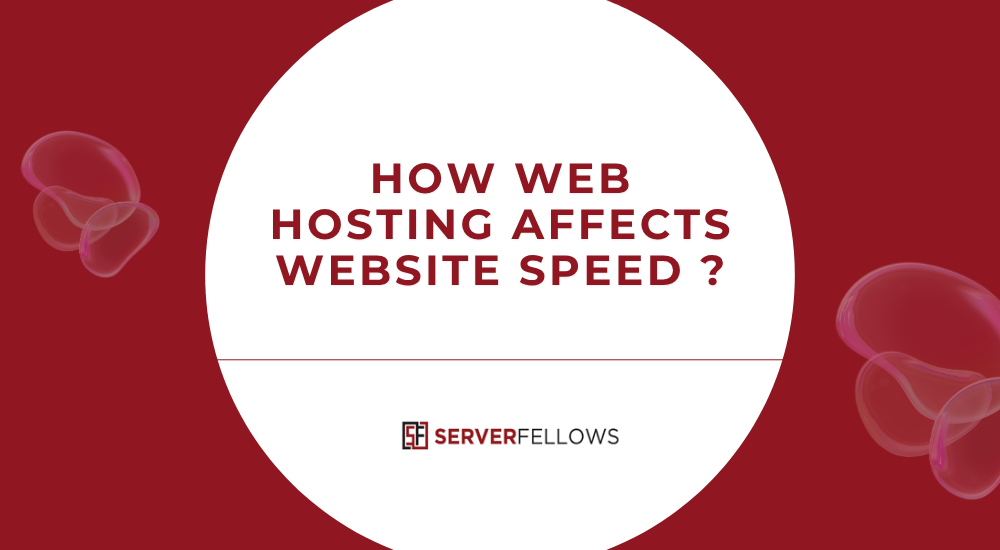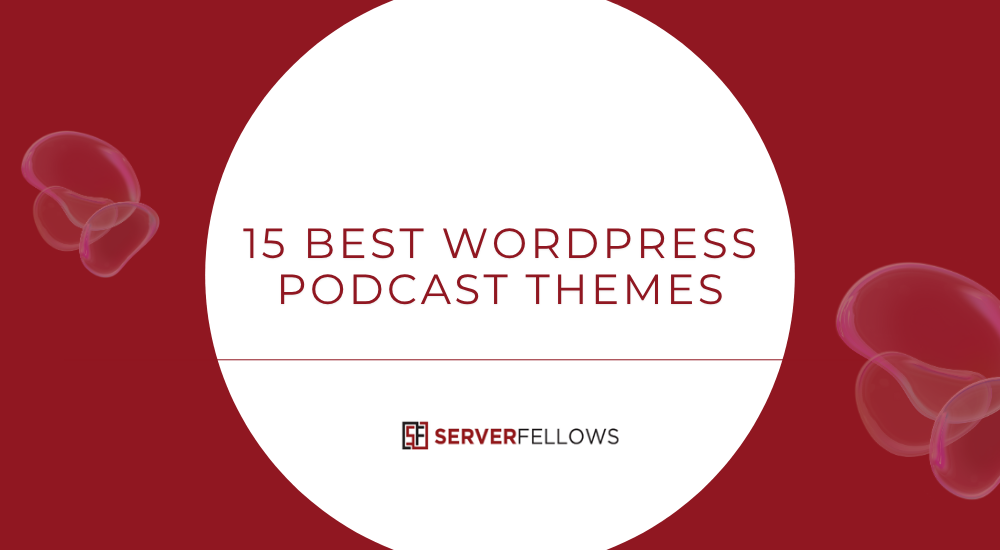
How Web Hosting Affects Website Speed
Website speed is one of the most important factors for online success. Whether you’re running an e-commerce store, a blog, or a business website, speed can directly impact user experience, SEO rankings, and conversions. While design, images, and code optimization play their part, one factor often overlooked is web hosting.
In this article, we’ll explore how web hosting affects website speed, why it matters, and how to choose the right hosting plan to ensure peak performance.
Why Website Speed Is Crucial
Before we dive into hosting, let’s understand why website speed matters so much in today’s digital world.
- User Experience: Studies show that visitors leave if a website takes more than 3 seconds to load.
- SEO Rankings: Google uses speed as a ranking factor, so faster sites show up higher in search results.
- Conversions: Every extra second of delay reduces conversions by up to 7%. For online stores, this could mean thousands in lost revenue.
- Reputation: A fast site feels trustworthy, while a slow site feels unprofessional and unreliable.
In short: faster websites win more traffic, rank higher, and convert better.
How Web Hosting Affects Website Speed
Web hosting is essentially the “engine” that powers your website. Just like a car’s performance depends on the quality of its engine, your website’s speed depends on your hosting provider.
Here are the main ways hosting impacts website performance:
1. Server Location
The physical distance between your hosting server and your visitors matters. If your server is in North America but your audience is in Asia, requests take longer to travel back and forth. This results in slower load times.
Solution: Choose a hosting provider with data centers close to your target audience, or use a Content Delivery Network (CDN) to distribute content globally.
2. Server Resources (RAM, CPU, Bandwidth)
Every website uses server resources. When you’re on a shared hosting plan, those resources are split among multiple websites. If one website on the same server consumes too many resources, your site slows down.
Solution: Upgrade to a plan with more dedicated resources such as VPS or cloud hosting.
3. Storage Technology
Older servers often use HDD (Hard Disk Drive) storage, which is slower compared to modern SSD (Solid State Drives). SSD hosting significantly improves file access speed and reduces page load time.
Solution: Always choose hosting with SSD storage for faster data retrieval.
4. Caching and Optimization
Some hosts offer built-in caching systems that store frequently accessed data for quicker delivery. Without proper caching, servers must process every request from scratch, slowing performance.
Solution: Look for hosting providers that support server-level caching, such as Varnish, LiteSpeed, or Redis.
5. Network Quality
A hosting provider’s network infrastructure plays a big role in speed. High-quality networks with optimized routing ensure faster delivery of content, while poorly managed networks can cause bottlenecks.
Solution: Check if your host provides low-latency connections and strong uptime guarantees.
6. Uptime and Downtime
Slow websites are bad, but downtime is even worse. If your server goes offline frequently, users can’t access your site at all. This not only impacts speed but also damages credibility.
Solution: Select hosts that guarantee 99.9% uptime or higher.
7. Security Overheads
DDoS attacks, malware, or poor security configurations can slow down websites. Secure hosting providers mitigate this risk with firewalls, SSL, and automated monitoring.
Solution: Choose hosting that prioritizes performance plus security.
Hosting Types and Their Impact on Speed
Different hosting types come with different speed capabilities. Let’s compare:
Shared Hosting
- Cheapest option.
- Multiple websites share resources.
- If one site spikes in traffic, others slow down.
- Best for beginners or small blogs.
VPS Hosting (Virtual Private Server)
- Dedicated slice of server resources.
- Faster and more reliable than shared hosting.
- Ideal for growing businesses with moderate traffic.
Cloud Hosting
- Websites are hosted on a network of servers.
- Scalable, stable, and high-speed performance.
- Great for sites with fluctuating traffic.
Dedicated Hosting
- Entire server dedicated to one website.
- Maximum performance, speed, and security.
- Best for enterprises, high-traffic websites, and e-commerce.
How Web Hosting and Website Speed Work Together
When someone visits your website, here’s what happens:
- Browser sends a request to your hosting server.
- Server processes the request, pulls data from storage, and sends it back.
- Browser renders the website for the visitor.
If the server is underpowered, far away, or overloaded, each step slows down. That’s why choosing the right hosting plan is the foundation of speed optimization.
Common Questions on Hosting and Speed
Does cheap hosting slow down my site?
Yes. Budget hosts often oversell server space, meaning too many websites share limited resources, leading to slow performance.
Can plugins fix speed issues?
Plugins (like caching or image optimization) help, but if your hosting is slow, plugins can’t fully compensate. Hosting is the foundation.
Is speed only about hosting?
No. Website design, code, and content also matter. But hosting provides the infrastructure that powers everything else.
Can I switch hosting later if my site is slow?
Yes. Website migration is possible, but it’s best to choose the right hosting from the beginning to avoid downtime and hassle.
Best Practices for Faster Hosting Performance
If you’re serious about speed, here’s what to look for when choosing a hosting provider:
- SSD storage instead of HDD.
- Global data centers for faster delivery.
- Built-in caching and CDN integration.
- Scalability to handle traffic growth.
- High uptime guarantee (99.9%+).
- 24/7 support to resolve issues quickly.
Real-World Example: Hosting Speed in Action
Imagine two online stores selling the same product:
- Store A uses cheap shared hosting with overloaded servers. Their site takes 5–6 seconds to load.
- Store B uses cloud hosting with SSD storage and caching. Their site loads in under 2 seconds.
Which store do you think gets more sales and ranks higher on Google? Store B every time.
This shows exactly how web hosting affects website speed and why investing in better hosting pays off.
Action Steps to Improve Your Website Speed
If you feel your website is slower than it should be, follow these steps:
- Test your speed with Google PageSpeed Insights or GTmetrix.
- Identify if hosting is the bottleneck (high server response time).
- Optimize images, code, and plugins.
- If speed is still poor, upgrade your hosting plan.
Conclusion: Hosting Is the Engine of Website Speed
Your website’s performance is only as strong as the hosting that powers it. No matter how well-designed your site is, poor hosting will drag it down.
To succeed online, you must understand how web hosting affects website speed and invest in a reliable, optimized provider.
Faster hosting means:
- Better user experience.
- Higher SEO rankings.
- Increased sales and conversions.
If you want to take your business to the next level, consider upgrading your hosting plan today.
Get lightning-fast hosting at Serverfellows.com — speed your business can trust.


